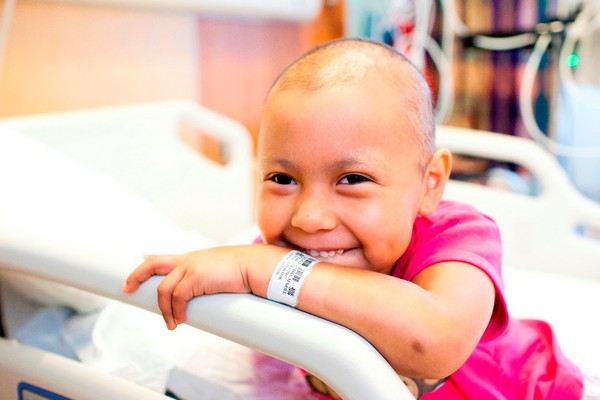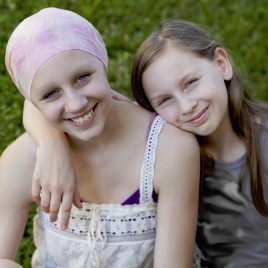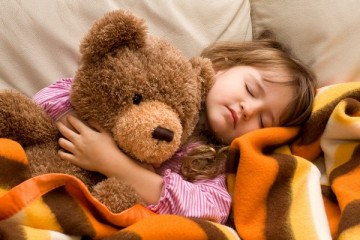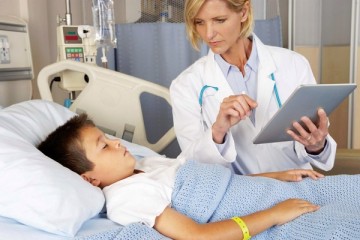Kids and Cancer: Pediatric Cancer Facts & Treatments

Children’s cancers are very different than adult cancers and must be treated with specific pediatric cancer protocols.
Adult Cancer vs. Pediatric Cancer Care
“The pediatric cancer patient is never an individual, but is looked at in the context of the family,” says Dr. Jamie Frediani, explaining the need for a family-centered treatment approach with young cancer patients. “Kids have siblings. They have parents. We try to understand that patient as a child, or teen, or young adult, but we also understand how they fit into their family and the family dynamics. In adult medicine, the family’s wishes are often secondary to the patient’s wishes. In pediatrics, they can be equal or overshadowed. A three-year-old can’t define what they want to do but with teens, we try to find the balance between the patient’s and the parent’s wishes.”
Pediatric Cancer Ages: Considering Development
According to Dr. Frediani, pediatric cancer patients are classified in one of three major groups:
- young children
- tweens/early teens
- teens/young adults
Developmental assessment and stages of the child’s growth, including in utero before birth, are considered. “We think of adult cancers as the consequences of living your life. In childhood, it really is more about developmentally what is going on. Sometimes the cause is unknown,” says Dr. Frediani.
Cancer Treatment for Kids: Approach at CHOC
Children with cancer are not just considered “little adults” in terms of care. “We want them to still be children,” says Dr. Frediani. “We make sure that we provide an environment that is nurturing and comforting to the family. This is very stressful for these families. We are always thinking of that. We have a team-centered approach. We have oncologists, social workers, psychologists, child life experts and others all working to provide the young patient with as normal of a life as possible while they are being treated. CHOC is truly committed. It’s our passion. We want to deliver the most advanced treatment we can.”
Adult vs. Teen and Young Adult Cancer Treatment
Adolescents and young adults into their late 30s who are being treated for cancer face a wide range of issues that need to be considered to help them cope. These issues include fertility preservation, the development of body image, career and education considerations, and dealing with an increased dependence on parents at a time when many in this age group strive to be more independent.
Helping Adolescents and Young Adults Cope with Cancer
There’s never a good time for a cancer diagnosis, but the teen and young adult years can be an especially tough time for cancer patients. Adolescents and young adults into their 30s who are being treated for cancer face a wide range of issues special to their age group that need to be considered to help them cope. These issues include fertility preservation, the development of body image, career and education considerations, and dealing with an increased dependence on parents at a time when many in this age group strive to be more independent.

Knowledge is the best medicine. Learn more about your child's health in these features from the experts at CHOC.
Kids and Bedwetting
Bedwetting occurs more frequently in boys than in girls, and the problem usually stops once the child is motivated and ready to work on staying dry.
Kids and PICS
Post Intensive Care Syndrome (PICS) encompasses the physical, cognitive and mental health issues affecting survivors of critical illness.
















